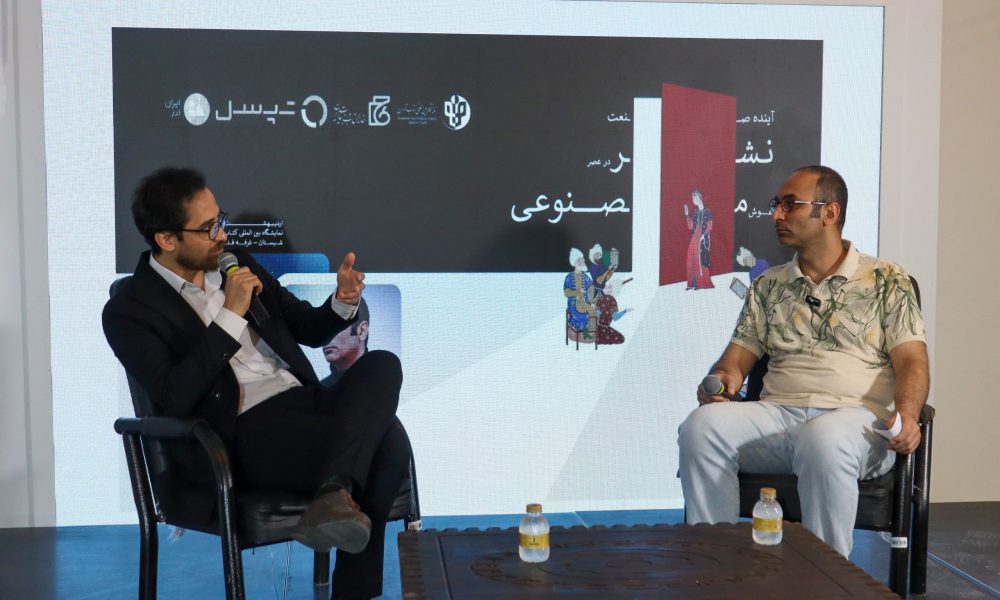The Publishing Industry in the Age of AI series of meetings will be held in the Publishing Technologies Hall at the 36th Tehran International Book Fair.
According to Ideaagency, in a session held in the Publishing Technologies Hall at the 36th Tehran International Book Festival, Kaveh Marhamati, art director of the digital platform Tapsell,in a conversation with Sadegh Attarzadeh said about the use of AI in the book space: “If we examine the space of essays and articles, AI is still used as a tool. Perhaps in the more routine and mechanical parts, such as editing or proofreading, we can still delegate the work to AI and get a desirable output, but the creative part of the content still exists, such as storytelling. Because AI relies on pre-prepared human data, it is necessary for a creative expert to define that content.”
He explained: “We can still say that AI does not have the power of lived experience and human creativity and imagination, but it can be viewed more as a tool, like other tools. When the camera entered people’s lives, everyone was on guard, and the same happened with AI, unaware that they did not see its beneficial effects.”
Referring to the reception of content that uses all AI, the art director of the digital platform Tapsell said: “There was an AI influencer on Instagram, Khanoumi, with pink hair, who initially appealed to the audience. This artificial intelligence worked in different locations or poses without cost, but in the end it became unattractive to the audience because the appeal of content is because it is human and real. When we go to content, we want to encounter a human experience.”
He added: “In the technical part and the article and the scientific aspects, artificial intelligence alone may be important, but where it is an issue of art, to the extent that it is devoid of human art, it is no longer interesting because we want to understand human emotion. If it is simply a machine reconstruction, the audience will not connect with it.”
This digital activist said about publishers entering the digital space: “When we talk about digitalization, all units must want to change. What steps should publishers take for digital advertising? There is too much sanctity in the field of workbooks, meaning they consider this field sacred. Many publishers still don’t want to admit that a large portion of their audience spends a large portion of their time online and visits this space for various reasons.”
Marhamati noted: “The first step for publishers to progress is to not see the book as a cultural and sacred thing without a guard, but rather as a cultural product, with better thought and planning for its promotion.”
He stated about the importance of the online space and artificial intelligence: “The online space provides us with a space that is not comparable to the offline space. With the help of artificial intelligence, it can be used at high speed. artificial intelligence can review and present what product to bring to the market under what conditions. Some books even have a specific chapter for presentation. From warehousing to distribution, artificial intelligence can manage what content can be used. Books don’t necessarily need to have an electronic version, the important thing is the information.”
He added: “Routine market research is lacking in Iranian businesses. More traditional businesses have not changed when the new wave has reached them and have suffered, such as a drop in sales, changing trends, and changing audiences and tastes, which is costly for them, and there is a numbness in businesses.”




No Comment! Be the first one.